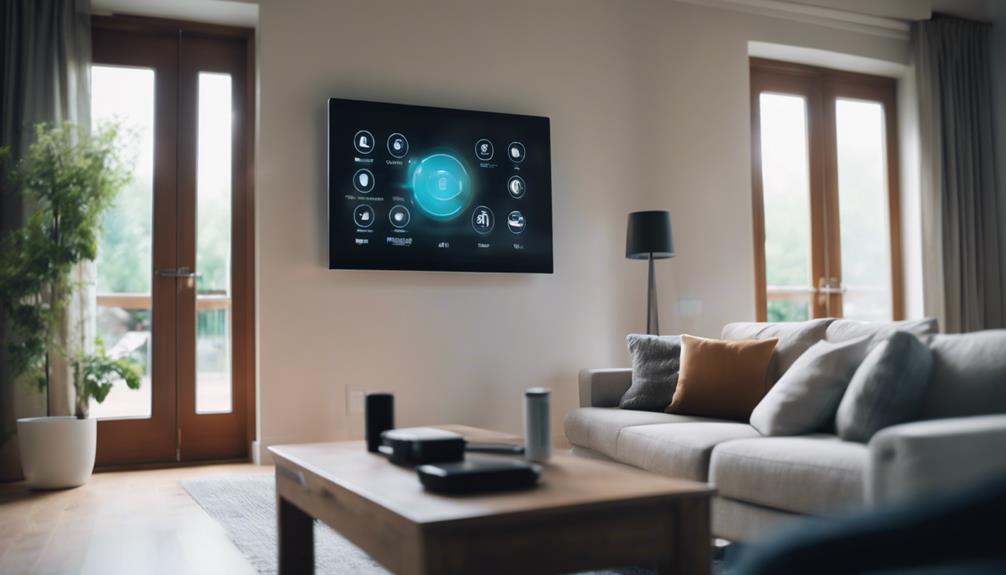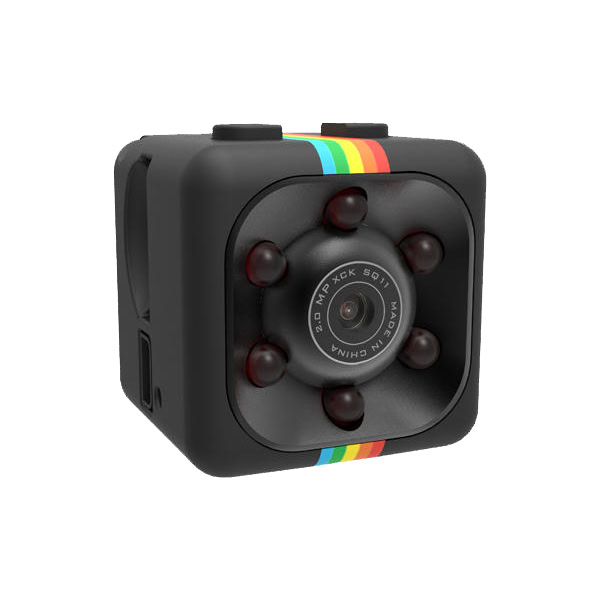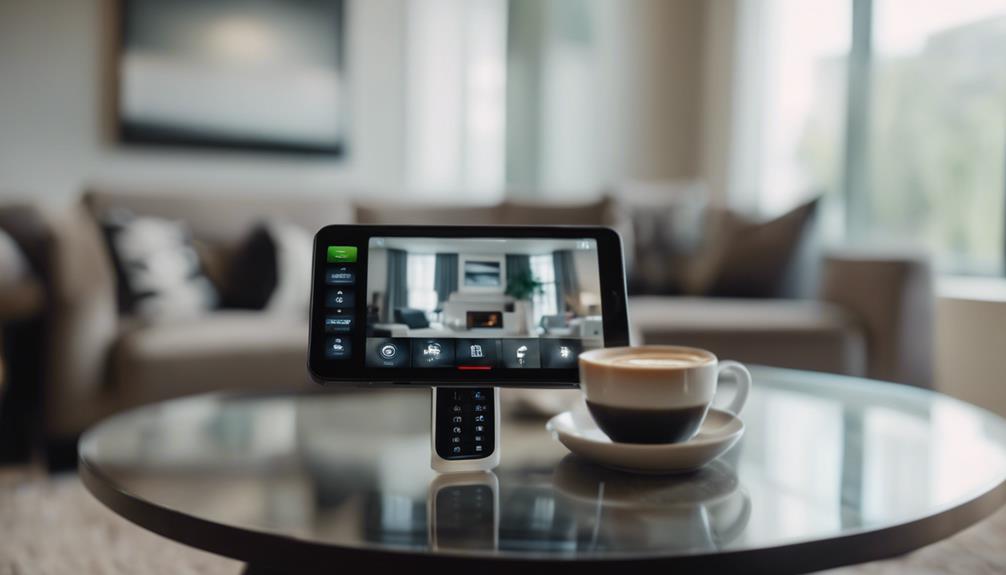
Brainstorm Security Shop

For Orders Over $199

On Any Of Our Products

Details On Refund Page
When you’re considering to buy a home security system for condos it’s essential to focus not just on your individual unit but also on common areas and entry points. You’ll need a system that balances robust protection without infringing on the privacy or convenience of other residents. Features like real-time notifications and integrated smart technology aren’t just bonuses; they’re necessities for staying a step ahead of potential security breaches. But how do you choose the right system that adheres to your condo association’s regulations while providing the best protection? Let’s explore the critical elements that make a security system effective for condo living.
Every condo owner must recognize the unique security challenges that come with shared living spaces. Living in a condo means you’re part of a larger community where multiple families share common areas like lobbies, gyms, and hallways. This setup can increase the risk of unauthorized access, making it vital to understand who’s coming and going.
You’ve got to consider the flow of residents and visitors. It’s not just about your unit, but also about the collective security of the building. The presence of multiple entry points in a condo building can complicate security. You need to know if these are monitored or if they remain open, posing potential risks.
Moreover, the turnover of residents can be frequent in condos, especially in urban areas. This constant change can make it hard to recognize faces and know who should be there and who shouldn’t. It’s essential to stay informed about who your neighbors are and remain aware of changes in residency.
Lastly, think about the management of your building. They play a crucial role in maintaining security protocols. Is there a system in place for reporting and responding to security issues? Your safety might depend on how proactive and responsive they are.
When choosing a security system for your condo, consider key features that address specific risks associated with multi-unit living. You’ll want to look for systems that offer robust access control. This means keycards or codes that are easily changeable should someone move out or lose their access device. It’s not just about the front door; ensure the system can integrate with the garage and any other common entry points.
Video surveillance is another critical feature. Opt for cameras with high-resolution quality and night vision capabilities to monitor hallways, stairwells, and other shared spaces. Make sure the storage options for footage are secure and comply with your local privacy laws.
Intrusion detection should extend beyond your individual unit. Effective systems detect when someone attempts unauthorized entry into any area of the building, not just your own space. Look for systems that offer real-time alerts to your phone or other devices, so you’re always in the loop, no matter where you are.
Lastly, don’t overlook environmental monitoring. Features like smoke detectors, water leak sensors, and carbon monoxide detectors can provide an added layer of safety, alerting you to issues that could affect the entire building.
How do you ensure a smooth installation of your new condo security system?
First, you’ll want to check with your condo association’s rules. Many have specific guidelines about what you can and can’t install, so it’s crucial to get this cleared before you start. This can prevent any legal headaches or wasted investments if certain system components aren’t allowed.
Next, consider hiring a professional installer familiar with condo setups. They’ll know how to integrate your system without causing damage to shared walls or wiring. If you’re DIY-ing it, make sure you understand the wiring and connectivity requirements of your system. Don’t forget to test all components before fully installing them to ensure everything is in working order.
Plan your installation for a time when it’s least likely to disturb your neighbors. Quiet hours aren’t just a courtesy but often a requirement in condo living. Let your neighbors know ahead of time about your installation plans to maintain good relations and avoid complaints.

Now that you’ve planned your installation, let’s look at the best security devices suited for condos.
First up, consider video doorbells. These let you see who’s at your door, whether you’re home or not. Compact and easy to install, they’re a perfect fit for condo living.
Next, think about high-quality deadbolts. Enhancing your door’s hardware is a straightforward way to boost security. Choose models that resist picking and drilling.
Window sensors are another must-have. They alert you if a window is opened or broken, providing an extra layer of protection. For those on lower floors, balcony sensors can offer peace of mind, detecting any unexpected entry from these accessible points.
Don’t overlook indoor cameras. Positioned in common areas like the living room or hallway, they help monitor any interior activity. Look for discrete designs that blend with your decor but keep a watchful eye.
Lastly, consider a reliable alarm system that notifies you of any security breaches. Compact systems designed for smaller spaces are available, ensuring you don’t have to compromise on safety due to size limitations.
Each of these devices offers a layer of security, contributing to a safer living environment in your condo.
Integrating smart home technology can streamline and enhance your condo’s security system. By embracing these innovations, you’ll find managing security becomes more intuitive and less intrusive. Smart devices, such as cameras, sensors, and alarms, can all be interconnected and controlled remotely via your smartphone or tablet. This means you can monitor your home in real-time, no matter where you are.
You might also consider installing a smart door lock, which allows you to lock and unlock your door remotely. This is particularly useful if you need to let in guests or service providers while you’re away. Additionally, smart motion detectors can send alerts directly to your phone if any unexpected movement is detected, providing an extra layer of security.
Another significant benefit is the ability to integrate these devices with other smart home systems like lighting and thermostats. For instance, you can set your lights to turn on automatically if your security camera detects someone approaching your door, potentially deterring would-be intruders.
After setting up your smart home security system, it’s important to regularly maintain and update your devices to ensure they function optimally. You’ll want to check for software updates monthly. These updates often include security patches that protect against new threats. Neglecting them could leave your system vulnerable.

You should also regularly test all components of your system. This includes cameras, sensors, and alarms. Make it a habit to check camera feeds for clarity and ensure motion sensors aren’t obstructed. Testing your alarms monthly by triggering them intentionally (during a time you’ve informed your household and neighbors) ensures they react as expected during an actual emergency.
Don’t overlook the physical upkeep of your devices. Dust off cameras and sensors, and check for any signs of wear and tear that could affect performance. If you’re using wireless components, keep an eye on battery levels and replace them before they run out.
Lastly, always keep your contact information up-to-date with your security system provider. If they need to alert you about suspicious activity or system errors, you’ll want to make sure they can reach you without delay. By staying proactive, you’ll keep your condo secure and your mind at ease.
In wrapping up, you’ve got the tools to bolster your condo’s security effectively. Always align with your condo association’s regulations when installing any system.
Opt for high-res cameras, smart locks, and timely alerts to stay ahead.
Don’t forget about regular maintenance to keep everything running smoothly.
With these strategies, you’ll not only protect your home but also enhance your daily living with the convenience and peace of mind that modern smart home technology offers.
